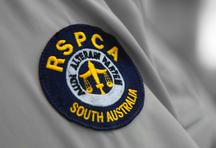
What not to share with your pets this Easter
April 13, 2017Easter is a great time to get family and friends together for a delicious meal, indulge after a period of abstinence, or splurge on chocolate. But don’t extend this treatment to your pets, or you could seriously damage their health.
Ensure your beloved four-legged friend stays happy and healthy during the Easter period with a list of toxic foods that should definitely be kept out of reach of pets.
Chocolate
Easter may be the perfect excuse for us humans to satisfy our sweet tooth, but cats and dogs are actually lactose intolerant. There is also a substance in chocolate that is poisonous in its own right. If your furry besties eat chocolate, they could also experience cramps, diarrhoea, an elevated heart rate, muscle tremors, seizures, vomiting and even death.
Cooked bones
Raw bones are fine for your canine and feline friends, but you should never feed them cooked bones. Cooking bones causes them to splinter easily, meaning they may damage your pet’s intestines or throat.
Gravy and marinades
If you’re sharing the leftovers from your Easter lunch with your pet, make sure any meat scraps are free of gravy and marinades. Fats, pepper, red wine and other ingredients found in sauces could all upset your animal’s stomach.
Foil and wrappers
Although these aren’t edible, they’re sure to be around at Eastertime, are easily swallowed by curious pets and can do serious harm. So remember to always clear away chocolate wrappers and foil from chocolate eggs, as cats and dogs might choke on them.
Fish
Small amounts of fish are fine, but feeding your cat or dog exclusively canned, cooked or raw fish can result in a vitamin B deficiency, leading to loss of appetite, seizures and even death. Remember too that small fish bones could get stuck in your pet’s throat.
Hot Cross Buns
These traditional spiced sweet buns often contain currants, raisins and sultanas, which are toxic to a dog’s kidneys. If you furry friend eats these, he could become lethargic, experience increased thirst, or vomit.
If you suspect your pet has eaten something she shouldn’t have, or shows signs of any of these side effects, RSPCA SA advises taking your pet to your local veterinarian as soon as possible.




Im told onions are bad is that correct
Hi Maureen, yes onions are toxic to dogs!